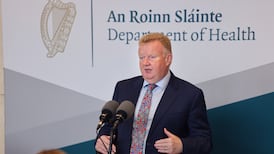Cases of common sexually transmitted infection (STI) syphilis have increased by almost a third in the first six months of this year when compared to the same period last year, new figures show.
STI cases are rising globally, with Ireland seeing a “significant increase” in the past year when compared with pre-pandemic levels.
According to the most recent figures from the Health Protection Surveillance Centre (HPSC), up to June 29th, incidence of syphilis is up 31 per cent, from 413 cases in the first six months of 2023, to 544 during the same period this year.
The number of cases of HIV has also increased by 27 per cent, with 548 diagnosed this year so far — an increase on the 431 during that time last year.
READ MORE
The incidence of genital herpes, meanwhile, is up almost 10 per cent — from 822 during the six months last year to 902 in 2024.
There were 99 cases of trichomoniasis, also known as trich, in the first six months of the year. This is up from 27 during the same period last year, an increase of 266 per cent. However, the numbers remain quite small. This is a common infection in African and Asian communities but less so in western communities.
The HPSC report also shows some infections have declined in prevalence. Chlamydia and gonorrhoea cases are down 16 per cent and 13 per cent respectively.
Derek Freedman, a consultant in STIs and HIV, said the increase in syphillis is “very worrying”.
“It’s a very serious infection with long-term consequences. It normally begins with a silent sore that they cannot see,” he said, adding it is reliably detected through blood screening.
“It’s very easily treated. But long term, it can affect any organ in your body, including your heart. Its impact on bones is well established, as well as skin and particularly the brain. It can cause dementia and paralysis.”
Dr Freedman said there are a “variety of reasons” why STIs are increasing, including a post-Covid increase in sexual activity, travel, migration, dating apps and the availability of anti-HIV medication called pre-exposure prophylaxis (PrEP).
“People on PrEP know they are protected from HIV but they forget about the other possible infections,” he added. “The big message is people should attend for screening. And people should always try and get the name and number of people they’re with.”
- Sign up for push alerts and have the best news, analysis and comment delivered directly to your phone
- Join The Irish Times on WhatsApp and stay up to date
- Listen to our Inside Politics podcast for the best political chat and analysis











